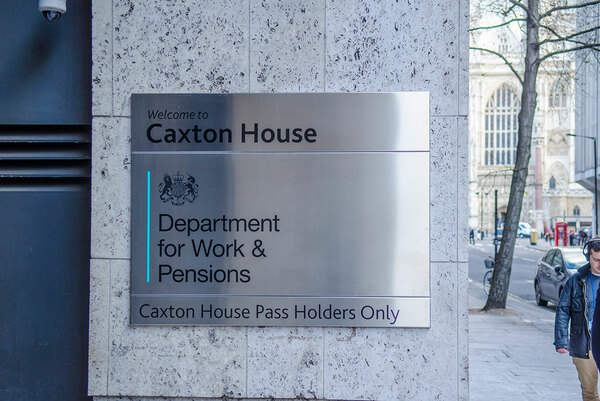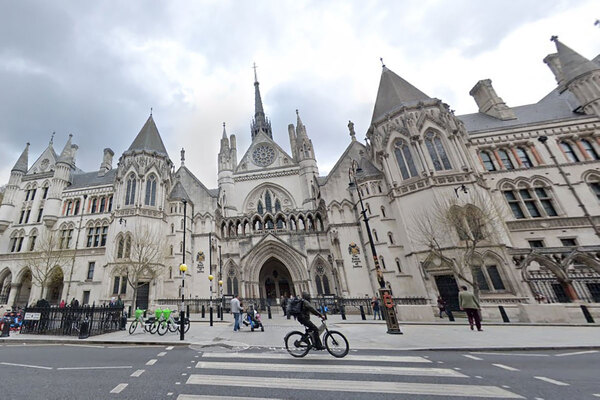You are viewing 1 of your 1 free articles

What are the legal considerations for social landlords contemplating offering rent holidays?
Social landlords will want to do the right thing at this difficult time, but there are legal considerations they must take into account when designing new rent policies, write Scott Dorling (pictured) and Tom Wainwright
Landlords will naturally be trying to do all they can to support their communities during this time of crisis.
This can include looking at tenants’ ability to continue to make rent payments and considering alternative options if they cannot.
Such options could be rent holidays, allowing different tenants to pay different amounts of rent, or rent deferral arrangements.
The desire to ease peoples’ burdens in this stressful time is natural and should be encouraged.
Councils and housing associations will nonetheless need to thinks their strategies through very carefully, consider the potential impacts more widely and ensure that they remain compliant from a regulatory perspective.
Taking a little more time to have a well-thought through strategy for rent ‘forbearance’ will be time well spent in the long run – particularly as the threat of eviction for social tenants has been removed during the coronavirus crisis. Here are some of the issues that local housing authorities and housing associations will need to consider:
- Local authorities have a general power in the Housing Act 1985 to set reasonable rents for their tenancies. That power is of course now subject, for the first time, to the Rent Standard issued by the Regulator of Social Housing. The Rent Standard limits the maximum rents for social housing and also imposes controls on future rent increases. The ability to reduce or waive rents is therefore not prohibited by the Rent Standard. Under section 24(2) of that act, councils can make changes to rents generally or to particular rents as circumstances may require. On the face of it this permits an approach to rent setting that may differ from tenant to tenant. In our view, this differential approach to rent setting is intended to allow for differential rents for different types of property, either because of location, condition or other specific circumstances which warrant a different approach to the rent. Councils may therefore want to consider what flexibility that differential regime may offer them at this time.
- Councils may also be considering offering a rent-free period or rent holiday. They will need to take a number of issues into consideration to ensure that the decision, even though it might be an understandable decision, is a lawful one. Factors that will need to be taken into account will be the potential equality impact of the decision (depending on whether groups with particular characteristics will be impacted), the council’s fiduciary duty to tax payers generally and how the decision might impact the council’s ability to meet its obligations more generally, legitimate expectation concerns which might impact on the potential continuation of the rent-free period for longer than otherwise anticipated and the council’s duty to balance its Housing Revenue Account. These and other factors will need to be at the forefront of the decision-makers’ minds to ensure the veracity and defensibility of an understandably compassionate decision to relieve rent burdens from social housing tenants.
- While the government has signalled that it will legislate to ban new evictions for a three-month period, councils may want to consider what additional comfort it could give beyond this eviction freeze. Councils might wish to adopt (and publicise) an approach that confirms they will act fairly and compassionately in their treatment of tenants who are unable to meet their rent payments during the crisis. This could potentially go so far as to confirm that the local authority would not seek to evict any tenant for unpaid rent that has arisen out of the inability to pay rent as a result of the crisis – going beyond the three-month initial moratorium.
An issue to bear in mind if rent deferral arrangements are being considered is Financial Conduct Authority (FCA) regulation. Anything that might defer rent payments until a later date is a form of credit, may require FCA authorisation.
Councils have a general power to make loans or defer payments without requiring FCA authorisation provided that interest or other fees are not charged. For housing associations the position is more complicated, but broadly FCA authorisation is not required if:
- The repayment plan is an informal arrangement under which the tenant is given additional time to pay and is not charged interest or other fees. The FCA regards this as the landlord exercising unilateral forbearance, which it does not regulate. The difficulty is that it’s not always clear where informal arrangements end and formal arrangements that may require regulation begin. Generally, if the tenant is being asked to enter into a written agreement, then the arrangements can be regarded as formal.
- The repayment plan lasts for no longer than 12 months, involves no more than 12 repayments and involves no interest or other charges.
- The repayment plan is imposed by a court order.
In order to enter into repayment plans that do not fall into the above categories, housing associations are – as things stand – very likely to need authorisation from the FCA.
These generally take several months to obtain and do not apply retrospectively, meaning that options to assist tenants in urgent need are limited.
The desire to help tenants in every way possible at this extraordinary time has to be balanced against the criminal liability that can arise from entering into regulated credit agreements without having FCA authorisation in place.
Scott Dorling and Tom Wainwright, partners, Trowers & Hamlins
More on coronavirus
To see all our coronavirus coverage to date – including the latest news, advice to providers, comment and analysis – use the link below.
Sign up for our daily newsletter
Already have an account? Click here to manage your newsletters














